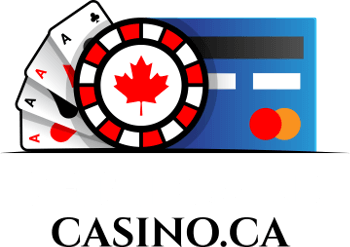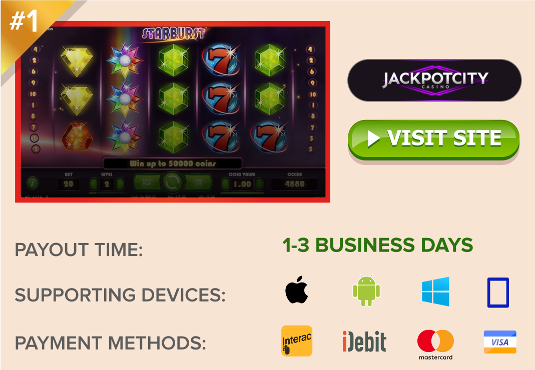Rules of Live Quantum Blackjack by Playtech
How to play Quantum Blackjack, a new live casino game from Playtech with infinite players and random win multipliers.
 Quantum Blackjack is the latest addition to the Playtech Live Casino gaming menu. It is similar to the brand’s Unlimited Blackjack tables, wherein only one player hand is dealt and shared by an unlimited number of players, but with a twist. In the Quantum version, special cards are randomly chosen each round to deliver win multipliers if the player’s hand contains one or more of them.
Quantum Blackjack is the latest addition to the Playtech Live Casino gaming menu. It is similar to the brand’s Unlimited Blackjack tables, wherein only one player hand is dealt and shared by an unlimited number of players, but with a twist. In the Quantum version, special cards are randomly chosen each round to deliver win multipliers if the player’s hand contains one or more of them.
With up to three random multiplier cards drawn prior to the completion of each hand, and up to 10x multipliers on each of those cards, it is feasibly possible to win a payout of 1,000x the initial bet. As fantastic as that sounds, there is one glaring problem – the practical impossibility of writing up a pocket-size strategy for it. See our Quantum Blackjack Strategy section below for more on that, but first, let’s talk about how the game is played, because there’s actually quite a lot going on.
How to Play Quantum Blackjack Live
The game begins with players making an initial bet. There are two optional side bets that can be made, as well, which I’ll talk more about below. For now, the original bet gets you a pair of cards to start with. Before I go on, let’s talk briefly about…
Quantum Multipliers
Once bets are placed, you’ll notice at least one card appearing on the back wall, behind the dealer. This is a digital screen that displays up to three cards being randomly chosen by a random number generator (RNG) from a single 52-card deck. These are the Quantum Multiplier cards. Next to each card is a multiplier number, 3x, 5x or 10x.
If the player has any of these cards in their hand, and goes on to beat the dealer, they will win an amount equal to their bet, multiplied by the Quantum multiplier. If the player has more than one Quantum card, the multipliers stack (multiply together), unless they are the exact same card.
For example, if the multiplier cards are Ace of Heart X3 and Four of Clubs X10, and the player is dealt Ah + 4c, then goes on to win, they will receive a win multiplier of 30x. If the player is dealt 4c + 4c and goes on to win, they will only be paid 10x the bet.
Note that multiplied payouts are “for”, not “to”. If being paid 30x the bet, you will receive “30 for 1”, meaning you get $30 for a $1 bet (total $30), as opposed to “30 to 1”, wherein you would receive $30 for the win, plus your $1 bet back (total $31).
Getting back to the game…
As cards are dealt to the player’s hand, you’ll see that they disappear on the felt, and show up digitally rendered in front of your player name. This is done so that each player who stands will not have to continue seeing the additional cards other players may be taking beyond that point. Thus each player only views the hand as they are playing it. Otherwise, this is a very typical game of blackjack, with hitting, splitting, and doubling allowed. The one thing that is not ordinary is the way the house makes up for the payout of multiplier wins.
Dealer 3-Card Bust Pushes
How do casinos pay out all those multiplied winnings and still maintain an edge? By forcing all standing player hands to push whenever the dealer busts with a three-card hand.
Put all that together, and you get an RTP of 99.47% (house edge 0.53%) according to the game’s base rules:
Specific Rules of Play
- Decks: 8
- Soft 17: Dealer Stands
- Doubling: Yes, on any first 2 cards
- Splitting: Yes, only once
- Double after Split: No
- Resplit Aces: No
- Draw to Split Aces: No
- Surrender: No
- Dealer Checks for Blackjack: Yes
- Dealer 3-Card Bust: Push
- Blackjack Pays: 3 to 2
Live Quantum Blackjack Side Bets
Playtech infused the usual 21+3 and Perfect Pairs side bets into its Quantum Blackjack live dealer tables. The winning conditions and corresponding payouts for these optional wagers are detailed below.
21+3
This bet utilizes a combination of the player’s original two cards with the dealer’s face-up card. The winning conditions are similar to 3-Card Poker.
| Player’s First 2 Cards + Dealer’s Up-Card… | Payout |
| Suited 3 of a Kind | 100:1 |
| Straight Flush | 40:1 |
| 3 of a Kind | 30:1 |
| Straight | 10:1 |
| Flush | 5:1 |
| House Edge | 3.70% |
Perfect Pairs
This bet is won if the player’s first two cards make a pair. The closer they match, the higher the payout.
| Player’s Hand is… | Payout |
| Perfect Pairs (Same Suits) | 25:1 |
| Colored Pair (Same Color Suits) | 12:1 |
| Mixed Pair (One Black, One Red) | 6:1 |
| House Edge | 4.10% |
Strategy for Quantum Blackjack
As I stated above it’s all-but impossible to lay out a direct, play-by-play strategy for Quantum Blackjack. Determining a situational strategy as you go, sure, but a basic one that can be summed up on a pocket-size chart or basic context table? It’s simply not possible. There are far too many variables.
It’s such a complicated theorem to digest, inputting all the values to test the math is a frightening prospect in and of itself, and one I refuse to put my brain through. Instead, you’ll have to join me in trusting the mathematical analysis provided by the game’s creators at Playtech. According to them, the house edge is 0.53% (RTP 99.47%) with optimal play.
The only advice I can really give you is to see as many cards as you can – within reason of course. Hitting 18 would not be recommended, but hitting 15 or 16 doesn’t seem like such a bad idea when the prospect of winning can be so valuable.
Instead of doubling, hit, so that if you get a low card you have the choice of hitting again. Most pairs should be split to increase volume of cards seen, as well. If you’re not winning any multipliers, that 3-card bust rule is going to destroy your ROI.
 Jackpotcity.com is our editorial pick for your gaming needs. Currently offering an entire suite of casino games, as well as a wide range of Canadian deposit options, JackPotCity truly offers world-class gaming.
Jackpotcity.com is our editorial pick for your gaming needs. Currently offering an entire suite of casino games, as well as a wide range of Canadian deposit options, JackPotCity truly offers world-class gaming.





